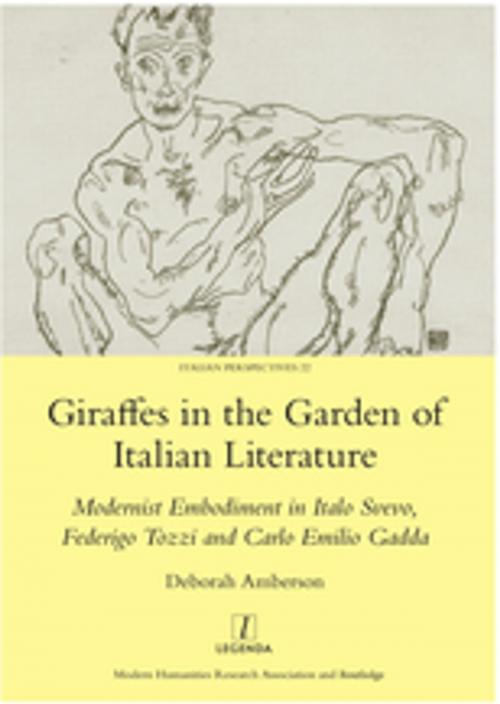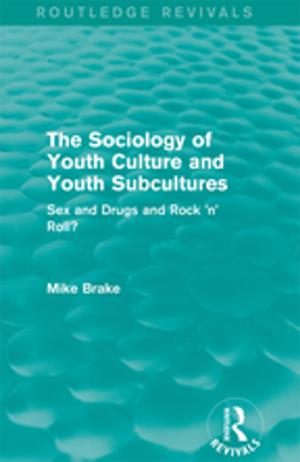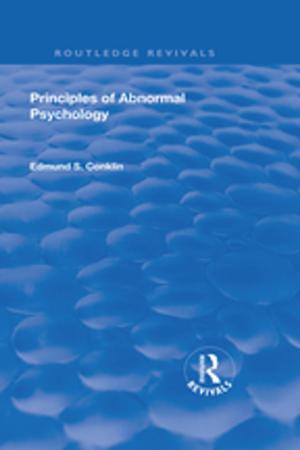Giraffes in the Garden of Italian Literature
Modernist Embodiment in Italo Svevo, Federigo Tozzi and Carlo Emilio Gadda
Fiction & Literature, Literary Theory & Criticism| Author: | Deborah Amberson | ISBN: | 9781351192613 |
| Publisher: | Taylor and Francis | Publication: | December 2, 2017 |
| Imprint: | Routledge | Language: | English |
| Author: | Deborah Amberson |
| ISBN: | 9781351192613 |
| Publisher: | Taylor and Francis |
| Publication: | December 2, 2017 |
| Imprint: | Routledge |
| Language: | English |
"Writing in 1926, Carlo Emilio Gadda (1893-1973) acknowledges his peculiarity within the Italian literary field by describing himself as a giraffe or a kangaroo in Italy's beautiful garden of literature. Gadda's self-characterization as exotic and even ungainly animal applies in equal measure to Italo Svevo (1861-1928) and Federigo Tozzi (1883-1920), authors who, like Gadda, thwarted efforts at critical classification. Yet the ostensible strangeness of these three Italian authors is diminished when their writing is considered within the framework of modernism, a label traditionally avoided by the Italian critical establishment. Indeed, within a modernism preoccupied with human embodiment, these Italian literary giraffes find their kin. Here, the central nexus of body, subjectivity and style that informs and binds the writing of Svevo, Tozzi and Gadda resonates with a modernist renegotiation and revalorization of a human body whose dignity and epistemological authority have been contested by social and technological modernity."
"Writing in 1926, Carlo Emilio Gadda (1893-1973) acknowledges his peculiarity within the Italian literary field by describing himself as a giraffe or a kangaroo in Italy's beautiful garden of literature. Gadda's self-characterization as exotic and even ungainly animal applies in equal measure to Italo Svevo (1861-1928) and Federigo Tozzi (1883-1920), authors who, like Gadda, thwarted efforts at critical classification. Yet the ostensible strangeness of these three Italian authors is diminished when their writing is considered within the framework of modernism, a label traditionally avoided by the Italian critical establishment. Indeed, within a modernism preoccupied with human embodiment, these Italian literary giraffes find their kin. Here, the central nexus of body, subjectivity and style that informs and binds the writing of Svevo, Tozzi and Gadda resonates with a modernist renegotiation and revalorization of a human body whose dignity and epistemological authority have been contested by social and technological modernity."















